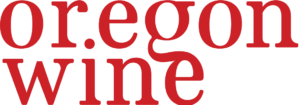Understanding Control Points from Crush Pad to Barrel in the Minimal-Intervention Cellar
Low-intervention and ‘natural’ wines have carved out a category for themselves in the wine market, leading to increased interest in these practices among both consumers and producers alike. Within this wine segment, winemaking methods are widely variable, and the resulting wine styles diverse. This session will offer both scientific and experience-learned techniques that can be utilized from fruit reception through élevage. New research from Sydney Morgan at the University of British Columbia, will be presented on different concentrations of sulfur dioxide additions at crush and its effect on different Saccharomyces cerevisiae strain compositions during fermentation. Guest winemakers and consultants include Eric Texier from the Rhône Valley, Mike Roth from Santa Barbara, and Chad Stock from the Willamette Valley, who will offer insight and strategies that can be applied in the cellar to lessen the reliance on modern winemaking tools without sacrificing quality.

Leave a comment